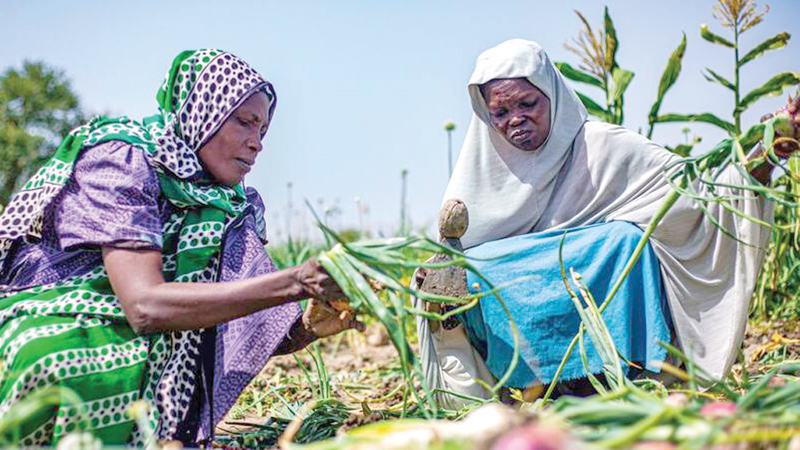- By 2050, feeding a global population of almost 10 billion will require a radical transformation in how food is produced,
- Urges hope, collective action and genuine multilateralism
Rome – The Director-General of the Food and Agriculture Organization of the United Nations (FAO), QU Dongyu, delivered the opening statement at the 44th Session of FAO Conference (June 28 –July 4), saying that humanity is at a “unique inflection point” where hope, action and genuine multilateralism are essential to tackle interconnected challenges.
Qu stressed the necessity of moving beyond rhetoric and called for collective will, dedication, and passion from all Members, partners, and stakeholders to tackle interconnected global challenges and transform them into opportunities.
“The very foundations of global agrifood systems are being tested,” he said. “This Conference is our global time – where ambition must meet strategy, where innovation must scale rapidly, and where solidarity must translate into tangible actions and solutions.”
The Conference, which is FAO’s paramount governing body and meets every two years, began on Saturday June 28 with the election as Chairperson of Mabouba Diagne, Minister for Agriculture, Food Sovereignty and Livestock of Senegal, and the McDougall Lecture by Philemon Yang, President of the 79th United Nations General Assembly.
The FAO also has stated that by 2050, feeding a global population of almost 10 billion will need a radical transformation in how food is produced, processed, traded and consumed.
Feeding this expanded population nutritiously and sustainably will require substantial improvements to global, regional and local agrifood systems so that they can provide decent employment and livelihoods for producers and every actor along the food chain, offer nutritious products for consumers, and do so without damaging our natural resources.
Throughout the week, FAO Members will discuss the Organization’s priorities and the proposed Program of Work and Budget for 2026-2027.
In his speech to the Conference, the Director-General outlined FAO’s ongoing commitment to value efficiency and operational excellence, particularly in light of a challenging funding environment.
Noting that “tightening resources leads to difficult decisions to be made,” Qu said he has since his first day in the job sought to make sure FAO is agile and adaptable and results-driven, and now ready to focus on high-impact initiatives that maximise return on investment.
“Key to this is maximising technical competencies and expertise in the core areas of work of the Organization and leveraging transformative partnerships to fully harness the resources, expertise, and innovative potential available,” he said.
The Director-General outlined initiatives he has piloted in his six years at FAO’s helm and priorities for his two final years as Director-General. He showcased some of FAO’s tangible impacts, pointing to the deployment of drones, robotics and precision-farming technologies in more than 50 countries, and more than $2 billion invested in seed systems and crop diversity in over 20 countries. Some 136 countries have now adopted FAO’s ePhyto digital solutions and more than 50 have benefited from normative advice on better pest, fertiliser and pesticide management.
In the past 12 months, FAO has supported the design of 65 public investment projects approved by international financial institutions in 46 FAO Member countries for an investment value of $9 billion, he said, adding that “public finance must act as a catalyst to crowd in responsible private investment.”







